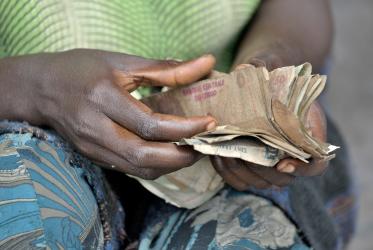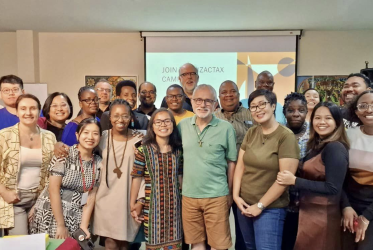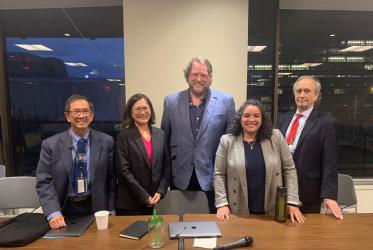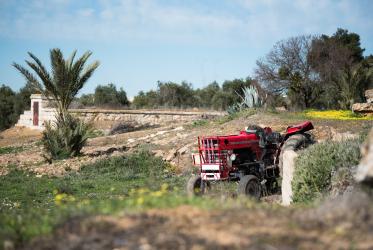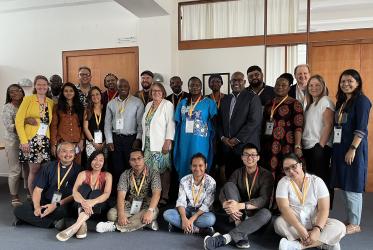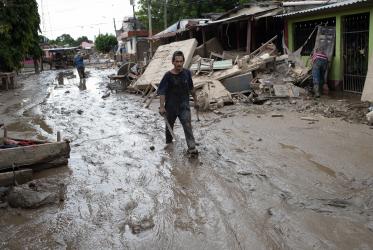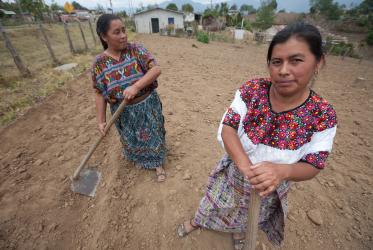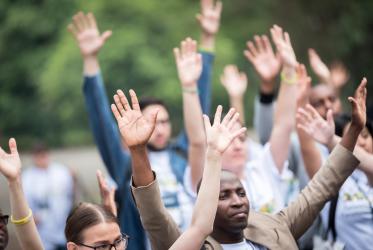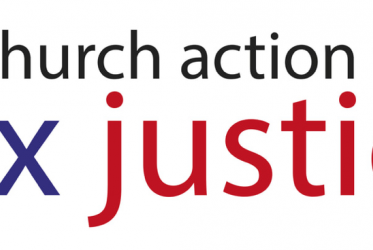Displaying 1 - 20 of 24
NIFEA group calls for reimagined global financial alternatives
21 September 2023
GEM School explores how to make new economic world order a reality
08 September 2023
GEM School grounds economic justice biblically
06 July 2022
Real economic reform still sadly missing, says WCC
07 November 2018
WCC’s Phiri speaks on globalisation and justice
24 September 2018
“Church Action for Tax Justice” begins in UK
02 May 2018


